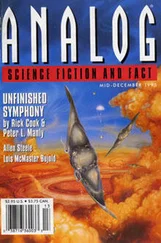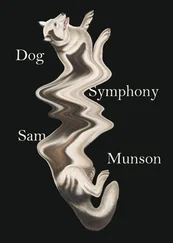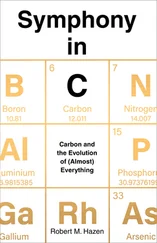G. - I suspect here such an enormous absurdity, or the intention of spinning a new paradox, that I do not want to imagine this. It looks as if you want to hint at the existence of something like a Capitalistic second Communist International, of course an enemy one.
R. - Exactly so. When I spoke of the financial International, I thought of it as of a Comintern, but having admitted the existence of the "Comintern," I would not say that they are enemies.
G. - If you want to make us lose time on inventions and phantasies, I must tell you that you have chosen the wrong moment.
R. - By the way, are you assuming that I am like the courtesan from
{p. 19} the "Arabian Nights," who used her imagination at night to save her life ... No, if you think that I am departing from the theme, then you are wrong. In order to reach that which we have taken as our aim I, if I am not to fail, must first of all enlighten you about the most important matters, while bearing in mind your general lack of acquaintance with that which I would call the "Higher Marxism." I dare not evade these explanations as I know well that such lack of knowledge exists in the Kremlin ... Permit me to continue.
G. - You may continue. But it is true that if all this were to be seen to be only a loss of time to excite the imagination, then this amusement will have a very sad epilogue. I have warned you.
R. - I continue as if I have heard nothing. Insofar as you are a scholastic with relation to Capital, and I want to awaken your inductive talents, I shall remind you of some very curious things. Notice with what penetration Marx comes to conclusions given the then existence of early British industry, concerning its consequences, i.e. the contemporary colossal industry: how he analyses it and criticizes; what a repulsive picture he gives of the manufacturer. In your imagination and that of the masses there arises the terrible picture of Capitalism in its human concretization: a fat-bellied manufacturer with a cigar in his mouth, as described by Marx, with self-satisfaction and anger throwing the wife and daughter of the worker onto the street. Is that not so? At the same time remember the moderation of Marx and his bourgeois orthodoxy when studying the question of money. In the problem of money there do not appear with him his famous contradictions. Finances do not exist for him as a thing of importance in itself; trade and the circulation of moneys are the results of the cursed system of Capitalistic production, which subjects them to itself and fully determines them. In the question of money Marx is a reactionary; to one's immense surprise he was one; bear in mind the "five-pointed star" like the Soviet one, which shines all over Europe, the star composed of the five Rothschild brothers with their banks, who possess colossal accumulations of wealth, the greatest ever known ... And so this fact, so colossal that it misled the imagination of the people of that epoch, passes unnoticed with Marx. Something strange ... Is that not so? It is possible that from this strange blindness of Marx there arises a phenomenon which is common to all future social revolutions. It is this: we can all confirm that when the masses take possession of a city or a country, then they always seem struck by a sort of superstitious fear of the banks and bankers. One had killed Kings, generals, bishops, policemen, priests and other representatives of the hated privileged classes; one robbed and burnt palaces, churches and even centres of science, but though the revolutions were economic-social, the lives of the bankers were respected, and as a result the magnificent buildings of the banks remained untouched ... According to my information, before I had been arrested, this continues even now ...
G. - Where?
R. - In Spain ... Don't you know it? As you ask me, so tell me now: Do you not find all this very strange? Think, the police ... I do not know, have you paid attention to the strange similarity which exists between the financial International and the proletarian International. I would say that one is the other side of the other, and the back side is the proletarian one as being more modern than the financial.
{p. 20} G. - Where do you see similarity in things so opposed?
R. - Objectively they are identical. As I had proved, the Comintern, paralleled, doubled by the reformist movement and the whole of syndicalism, calls forth the anarchy of production, inflation, poverty and hopelessness in the masses. Finances, chiefly the financial international, doubled, consciously or unconsciously by private finances, create the same contradictions, but in still greater numbers ... Now we can already guess the reasons why Marx concealed the financial contradictions, which could not have remained hidden from his penetrating gaze, if finances had not had an ally, the influence of which - objectively revolutionary - was already then extraordinarily important.
G. - An unconscious coincidence, but not an alliance which presupposes intelligence, will and agreement ...
R. - Let us leave this point of view if you like. Now let us better go over to the subjective analysis of finances and even more: let us see what sort of people personally are at work there. The international essence of money is well known. From this fact emerges that the organization which owns them and accumulates them is a cosmopolitan organization. Finances in their apogee - as an aim in themselves, the financial International - deny and do not recognise anything national, they do not recognize the State; and therefore it is anarchical and would be absolutely anarchical if it - the denier of any national State - were not itself, by necessity, a State in its own basic essence. The State as such is only power. And money is exclusively power.
This communistic super-state, which we are creating already during a whole century, and the scheme of which is the International of Marx. Analyse it and you will see its essence. The scheme of the International and its prototype of the USSR - that is also pure power. The basic similarity between the two creations is absolute. It is something fatalistic, inevitable, since the personalities of the authors of both was identical. The financier is just as international as the Communist. Both, with the help of differing pretexts and differing means, struggle with the national bourgeois State and deny it. Marxism in order to change it into a Communist State; from this comes that the Marxist must be an internationalist: the financier denies the bourgeois national State and his denial ends in itself; in fact he does not manifest himself as an internationalist, but as a cosmopolitan anarchist ... That is his appearance at the given stage, but let us see what he really is and what he wants to be. As you see, in rejection there is a clear similarity individually between Communist-internationalists and financial-cosmopolitans; as a natural result there is the same similarity between the Communist International and the financial International...
G. - This is a chance similarity subjectively and objective in contradictions, but one easily eroded and having little significance and that which is most radical and existing in reality.
R. - Allow me not to reply just now, so as not to interrupt the logical sequence ... I only want to decipher the basic axiom: money is power. Money is today the centre of global gravity. I hope you agree with me?
Читать дальше












